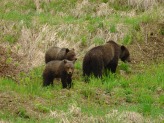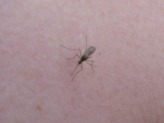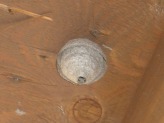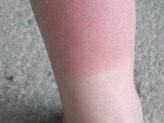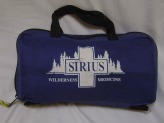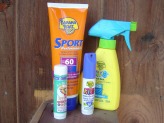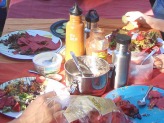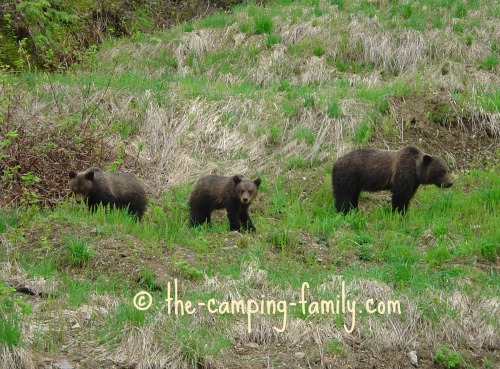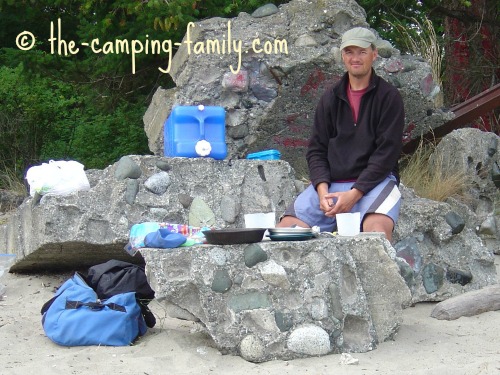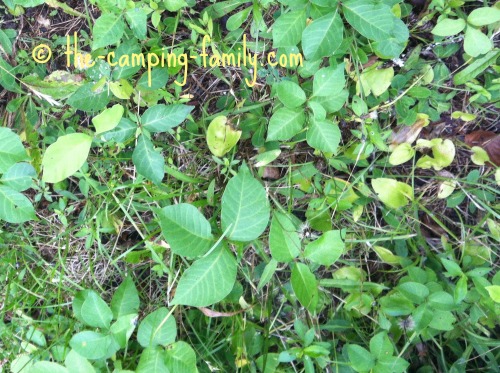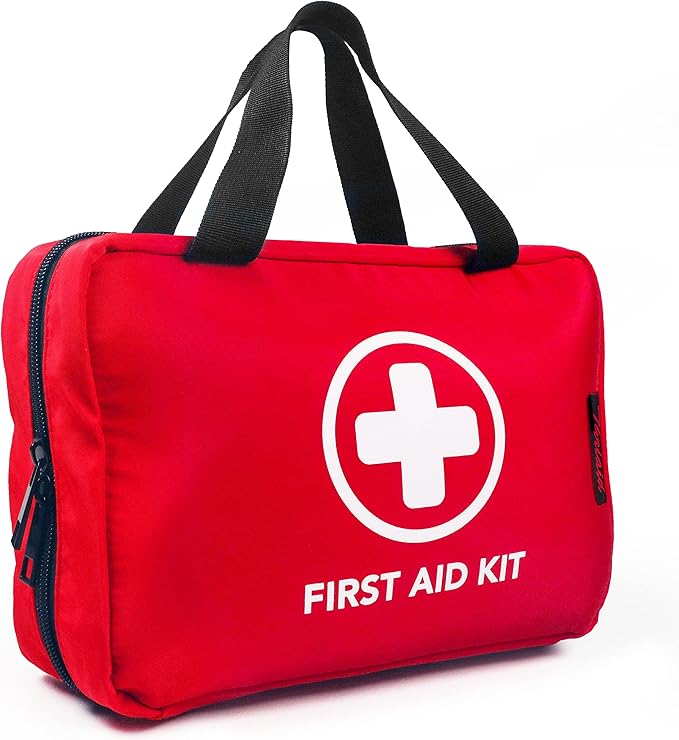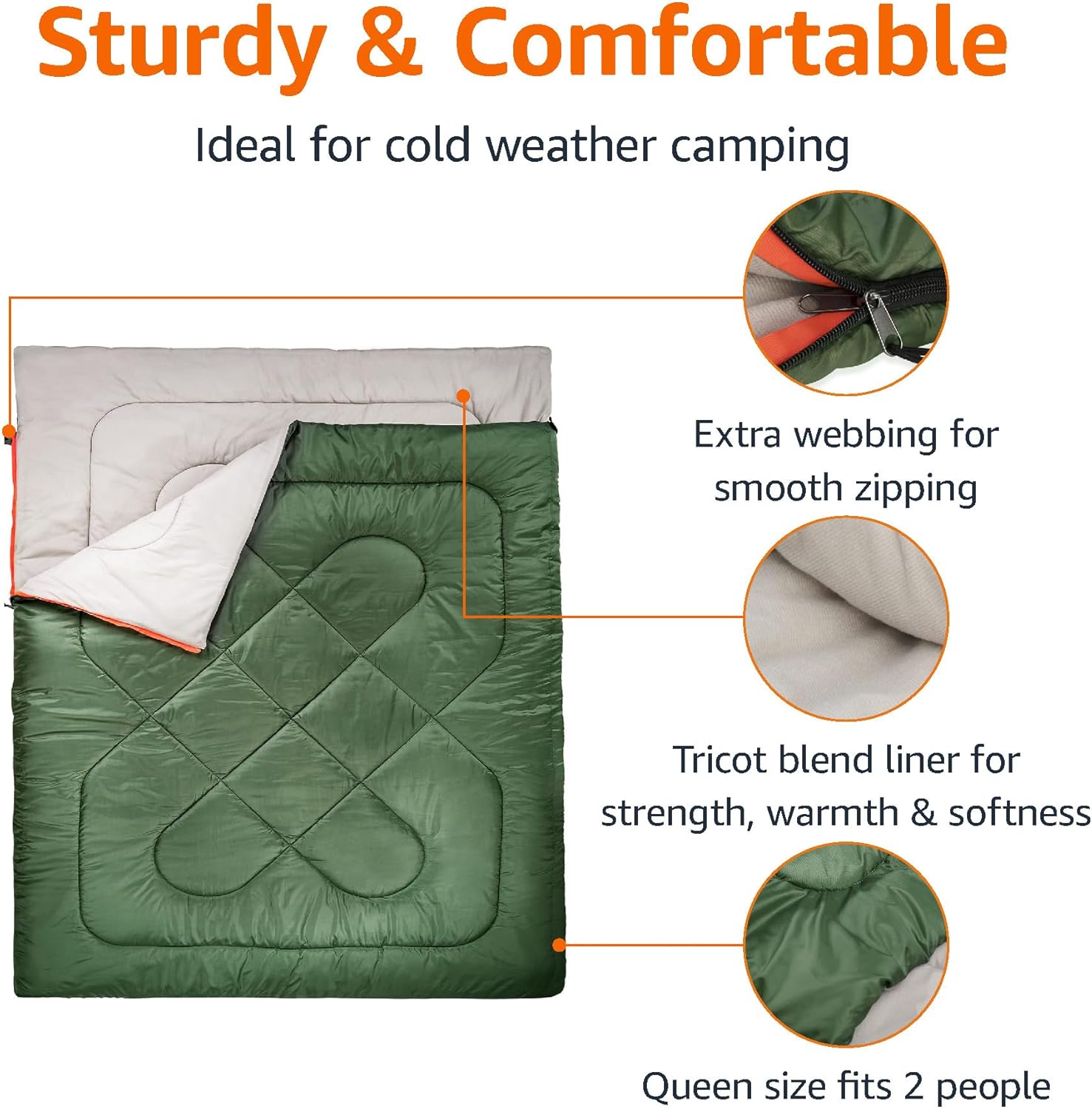Camping Safety
Keeping Your Family Safe At Camp
Learn about camping safety and have a trouble-free vacation!
Camping is the best way I know to spend time with your family - but it does hold its share of hazards.
Being in an unfamiliar environment and closer to nature than usual can lead to annoyances - or worse - if we don't take the appropriate precautions.
Don't worry!
Camping safety is really just a matter of thinking ahead, spotting and avoiding hazards, and making the environment safe for everyone - just as you do at home every day.
Camping Safety Hazards
Knowing what the dangers are and how to avoid them is a big part of camping safety.
Here are some of the dangers you may encounter when you go camping.
Bears
If you camp in certain parts of the world, you may share space with black bears and grizzly bears.
In most cases, just using common sense will keep you and the bears at a safe distance. After all, the bears don't want an encounter with you any more than you want one with them!
Follow these black bear safety tips and you will probably never need these bear attack tips!
And remember to pack the bear repellent spray if you are camping in bear country.
Campfires
A campfire is an essential part of a family camping trip, but an open fire is a real hazard. Always be vigilant when small children are anywhere near the fire.
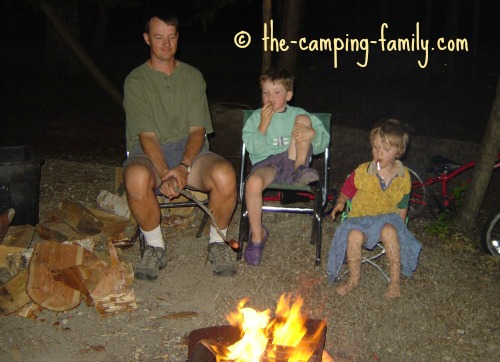
Teach them campfire safety rules, and insist that the rules are followed at all times. Have rules about who is allowed to use the hatchet, lighter and matches.
Teach children to walk, not run, near the fire.
Food
At home in your well-equipped kitchen, it's easy to follow the food safety rules that protect you from food-borne illnesses.
At camp, it can be trickier. You may or may not have refrigeration or running water. Handwashing may take more effort than at home.
If there is running water, it might not be safe to drink. You will need to have a water filter.
CLICK HERE for more details and the best price for a great filter!
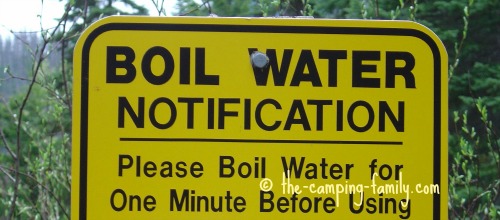
Follow these guidelines about proper food safety at camp to ensure that your camping food is as safe as it is delicious!
Insects
Chances are that you'll encounter your share of insects on any camping trip. Most are merely annoying, but some can be dangerous.
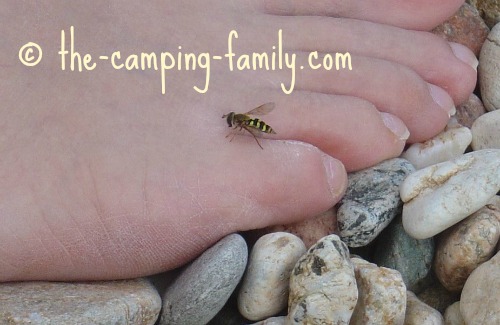
Mosquitoes
No one likes mosquito bites! At best, they are itchy and annoying. At worst, they can transmit disease.
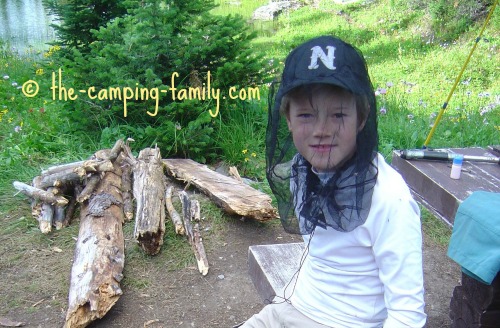
Here's what you should know about mosquito bite prevention.
Ticks
Tick bites are nothing to worry about unless the tick carries disease - but how can you know if it does? Here's what you need to know about ticks on humans.
Wasps and Bees
For most of us, a wasp or bee sting is a painful but short-lived experience. For those who are allergic, it can be life-threatening.
Here's how to avoid being stung by wasps and bees,
and
here is our page on how to treat wasp stings.
Knives
A pocket knife is an essential piece of camping equipment. You'll use it for making repairs, for preparing food, for whittling marshmallow roasting sticks and more.
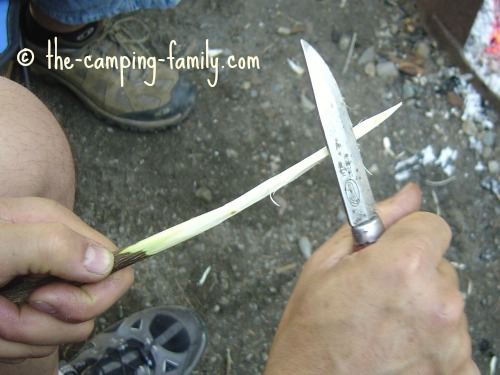
Pocket knives - especially the ones with all the gadgets - are so cute that you may forget how sharp they are! (I have done so - and I have the scars to prove it!)
Read about our favorite camping knives here.
Treat pocket knives with the respect they deserve, and you can avoid having to deal with cuts and wounds! (But do pack your first aid kit anyway!)
Sun
Sunburn, heat exhaustion and heat stroke are all possibilities when you spend time outdoors in the summer. Fortunately, all are easy to avoid if you take some common sense precautions.
Click here to learn how to apply sunscreen properly.
Click here to learn how to treat sunburn, just in case.
Be sure to learn how to recognize and treat heat exhaustion symptoms and ensure that they doesn't turn into heat stroke!
Noxious Plants
Being surrounded by green growing things is a lovely part of camping - unless those green growing things are "poisonous" and you touch them!
If you know what to look for, you can avoid poison ivy and its relatives.
If you don't, you'll want these tips on treating poison ivy!
Water
Spending time near lakes, streams, rivers or the ocean means that you'll have to take extra camping safety precautions.
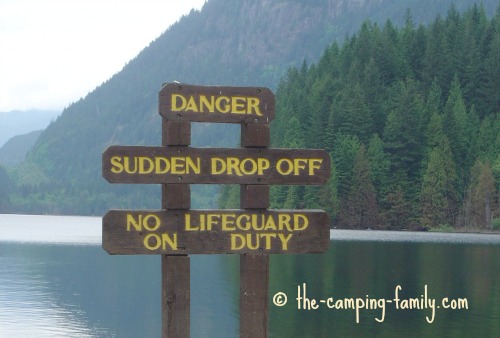
Children should be supervised anytime they
are near the water.
Assign one adult to child-watching duty
at all times. In a group of adults, it's easy to get chatting and to
assume that one of the others is watching the kids. (I was shocked to
learn that many beach drowning deaths happen when an adult is, in fact,
supervising!) Take turns so that everyone gets a chance for some
relaxing beach time.
Stay within arm's reach of non-swimmers and young children at all times. If they are puttering around at the shore, put them in PFDs to allow yourself the chance to at least sit down while supervising.
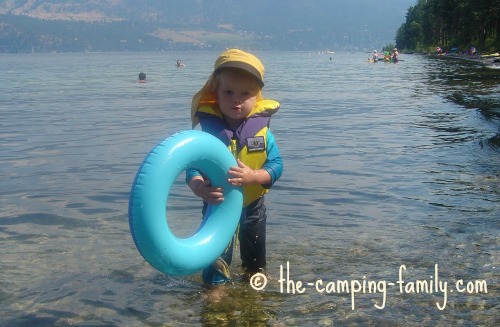
It's wise to know basic first aid instructions for camping. You may want to consider taking a first aid training course. Always pack a well-stocked first aid kit.
Here's a good first aid kid checklist.
CLICK HERE for further details and to purchase the First Aid Kit pictured above.
Camping safety is straightforward: be informed about your camping location, watch out for hazards and use common sense.
Have a safe and enjoyable family camping trip!
Now that you know all about camping safety, you can start thinking about the fun you'll have on your trip. Click here for some ideas for camping games.
Visit The Camping Family home page for everything you need to know about planning the perfect camping trip.
Most Popular
Product of the Month
Amazon Basics 40°F Cool Weather Two-Person Sleeping Bag
Cool weather is here!
CLICK HERE for more information and best price
Recent Articles
-
Camping Sites In Normandy France - We review some of the best!
Nov 24, 25 03:14 AM
We check and review a number of camping sites in Normandy France, and recommend the ones that we think are the best. -
Camping Sites In The South Of France; We Review Some Of The Best!
Nov 24, 25 02:46 AM
We check and review a number of camping sites in the south of France, and recommend the ones that we think are best! -
Camping Sites Near Paris France - Which One Should You Choose?
Nov 24, 25 02:42 AM
Find out which camping sites near Paris France are the best, and discover the camp sites near Paris to avoid!
